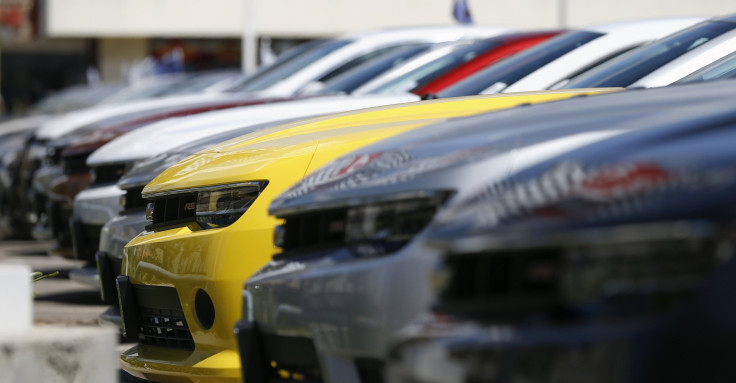Keyless Ignition Defect: BMW, GM And Ford Among 10 Automakers Sued In US By 28 Plaintiffs

U.S. consumers sued ten of the world’s largest automakers Wednesday for hiding the risks involved with carbon monoxide poisoning in over 5 million vehicles equipped with keyless ignitions. The case was filed in a federal court in Los Angeles by 28 plaintiffs, who claimed that the companies knew about the risks of keyless ignitions, which have been available in the U.S. since at least 2003, but kept the customers in dark.
The lawsuit alleged that many customers believed that after taking their electronic key fobs with them, the engine would shut down automatically. However, the vehicle kept running, endangering the lives of people who inhaled the "deadly" carbon monoxide, the plaintiffs reportedly said, adding that the defect had claimed the lives of 13 people and injured several others.
The plaintiffs also alleged that the defect reduces the resale value of their cars. The suit, which seeks a class-action status, calls for compensatory and punitive damages, and an injunction requiring companies to install automatic shut-off features on current and future vehicles with keyless ignitions.
The case was filed against BMW, including Mini; Daimler's Mercedes Benz; Fiat Chrysler; Ford Motor Co.; General Motors Co.; Honda, including Acura; Hyundai, including Kia; Nissan, including Infiniti; Toyota, including Lexus; and Volkswagen, including Bentley.
"The automakers had actual knowledge of the dangerous carbon monoxide poisoning consequences of vehicles with keyless fobs that lack an automatic shut-off," the complaint said, according to Reuters.
The lawsuit also claimed that the companies could have avoided the deaths and other injuries by installing a feature that could turn off the unattended engines automatically. According to the plaintiffs, many companies have added the auto-off feature in their newer vehicles but have not made the change in their older vehicles yet, CNN reported. GM and Ford had even taken steps to patent a shut-off feature, Reuters reported, citing the suit.
Since 2009, 27 complaints have been recorded with the National Highway Traffic Safety Administration over the keyless ignitions, according to the plaintiffs.
While Ford reportedly said that it takes customer safety "very seriously" and that its ignition system is "safe and reliable," others did not have an immediate comment.
The case was filed in the same court where Toyota Motor Corp. has defended itself against allegations that its cars accelerated unintentionally. In 2013, the Japanese company was ordered to pay $1.6 billion to settle claims by owners of the company's cars that their vehicles lost their values due to the defect.
© Copyright IBTimes 2025. All rights reserved.





















